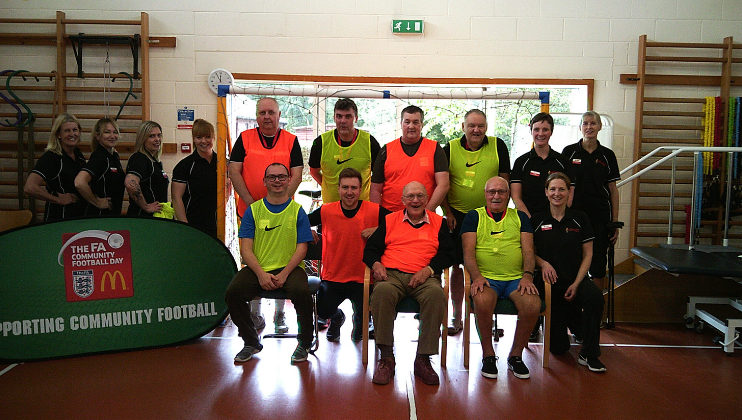Football has been at the forefront of our minds over the last few weeks – so what better time to give it a go?
While many people may be unable to take part in the traditional sport, whether due to injury, illness or simply a lack of interest, Walking Football has begun to grow in popularity – and it’s open to all, no matter your ability.
Here Exercise Therapist Jamie Perryman reveals how Walking Football sessions at Harcombe House, our centre in Devon, have proved hugely beneficial for people’s physical and mental wellbeing.
Walking Football is primarily intended to help people sustain an active lifestyle. Not only is it a gradual introduction to the sport, but it can also help people get back into playing traditional football if they have stopped due to age or injury.
However, beyond that, it’s simply a fun way to meet new people and try something new.
There are many health benefits to Walking Football, physically, mentally, and socially. Here are just a few…
Physical health benefits:
As we age, many of us may struggle with our balance, strength, stamina and potentially weight too. This, in turn, may impact our confidence and self-esteem.
However, in time, Walking Football could bring improvements to resting heart rate as well as hypertension, body strength, mobility and weight loss. It truly can change lives – and thanks to its slower pace and less contact, there’s a reduced risk of injury in the process.
Mental health benefits:
There are numerous psychological and mental health benefits to Walking Football too – from building confidence, to helping you meet new people and avoid feelings of isolation.
Specifically, it can boost personal reward and satisfaction, while also reducing stress.
Social benefits:
Walking Football provides an often-isolated sector of the community the possibility to get involved in something they really enjoy while meeting new people, creating long-term relationships with like-minded others and boosting quality of life.
And for those wishing to take a back seat, there are plenty of positions they can get involved in behind the scenes too, while still enjoying the community feel – whether that’s organisational or administrative roles. Being a team manager, arranging fixtures, or being involved with a management committee of a club can help keep people mentally engaged and provide them with a legitimate sense of purpose and belonging.
You can enjoy Walking Football recreationally or if you would like to get more competitive, there are over 1,000 teams across the UK participating in FA approved leagues. For more information on teams in your local area, visit thewfa.co.uk.
And it’s not just football. There are many more walking variations of much-loved sports, including netball, basketball, cricket, hockey, rugby and many more. So why not try one that interests you?

